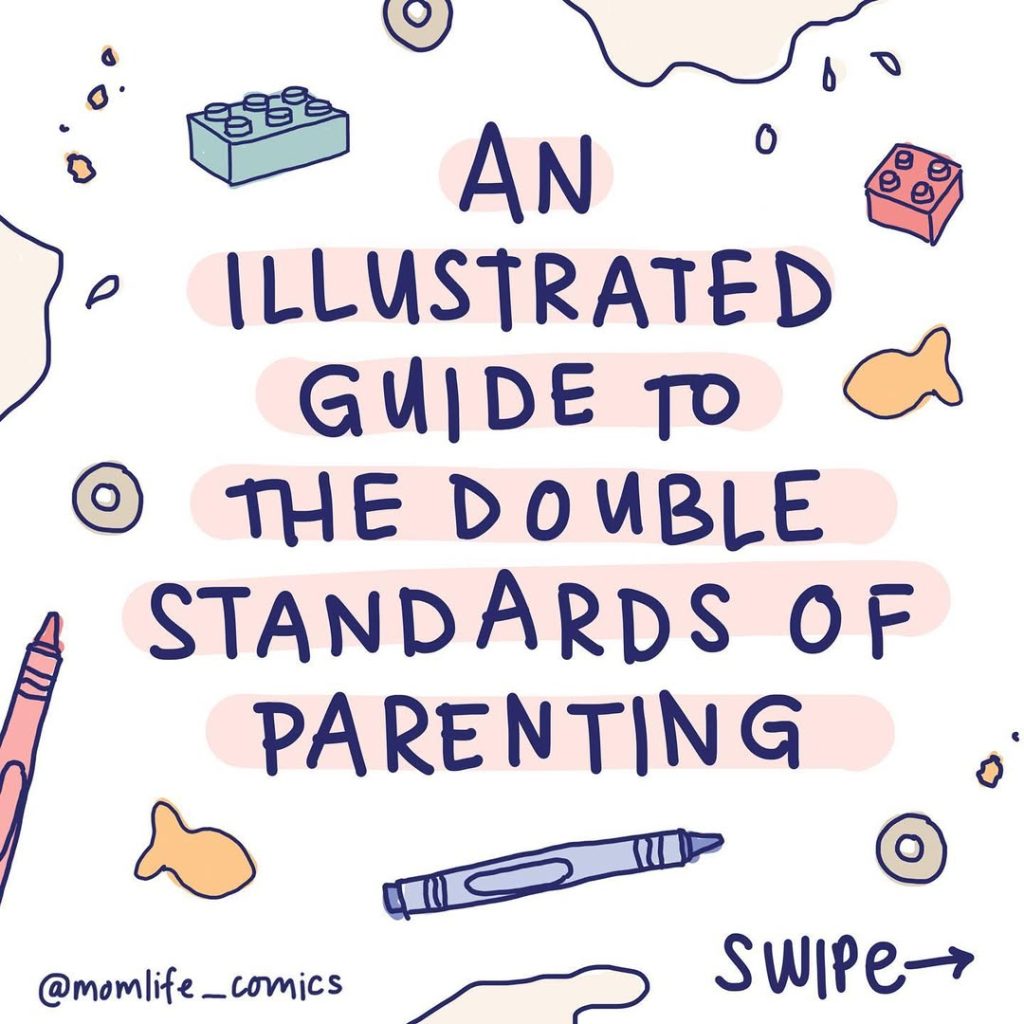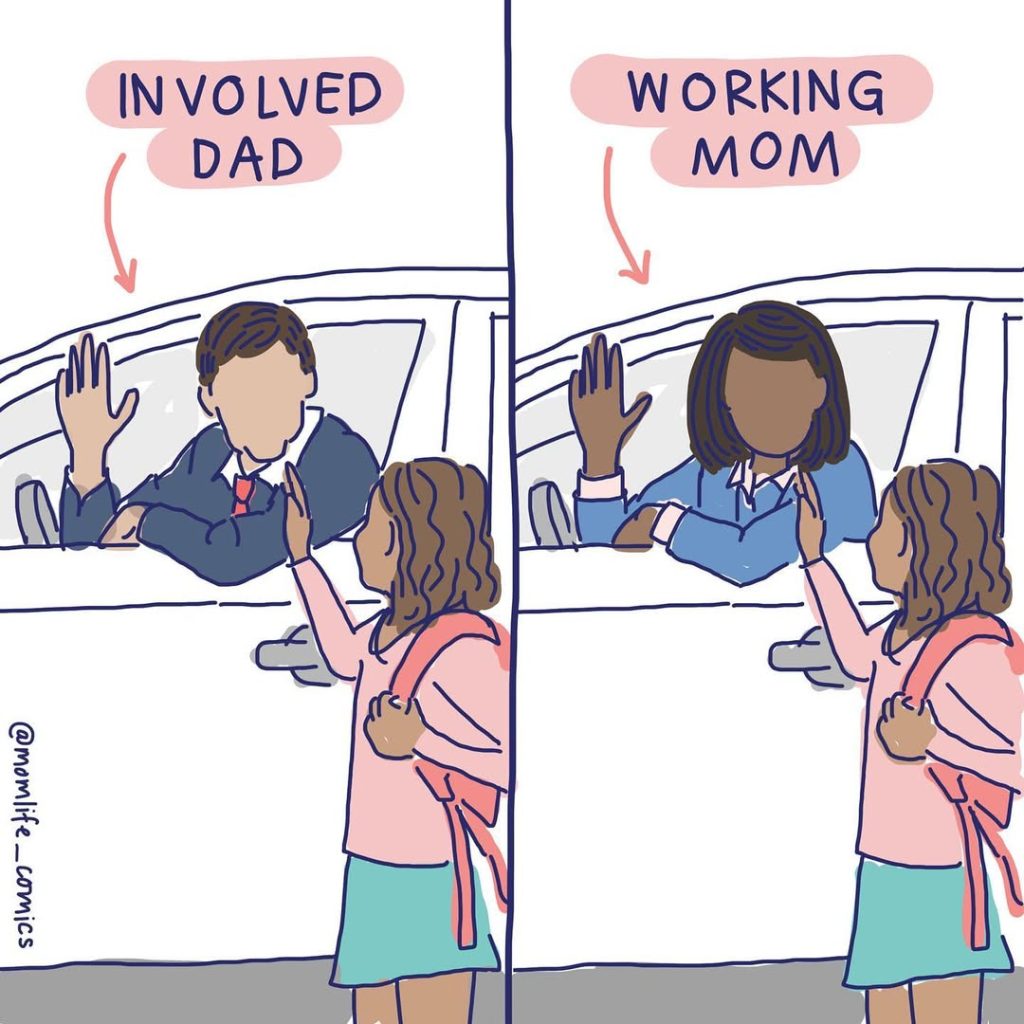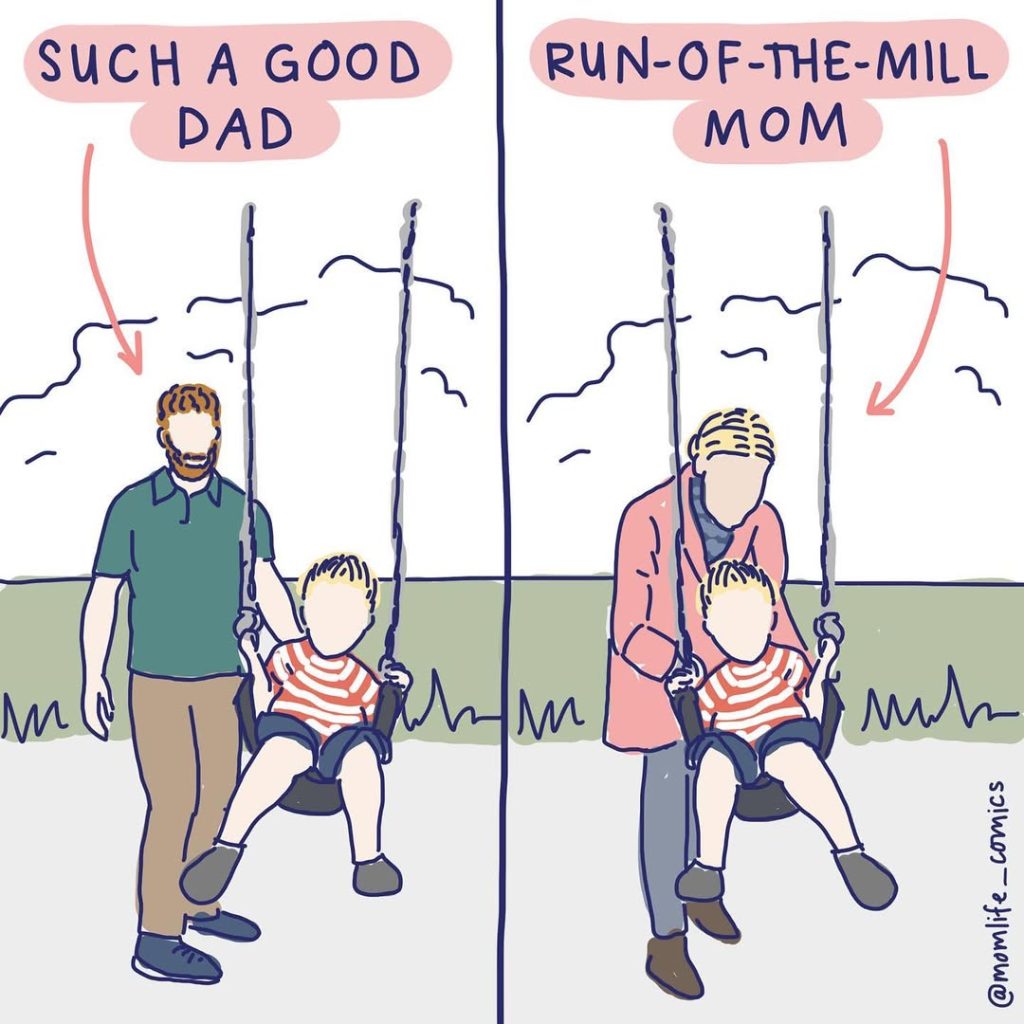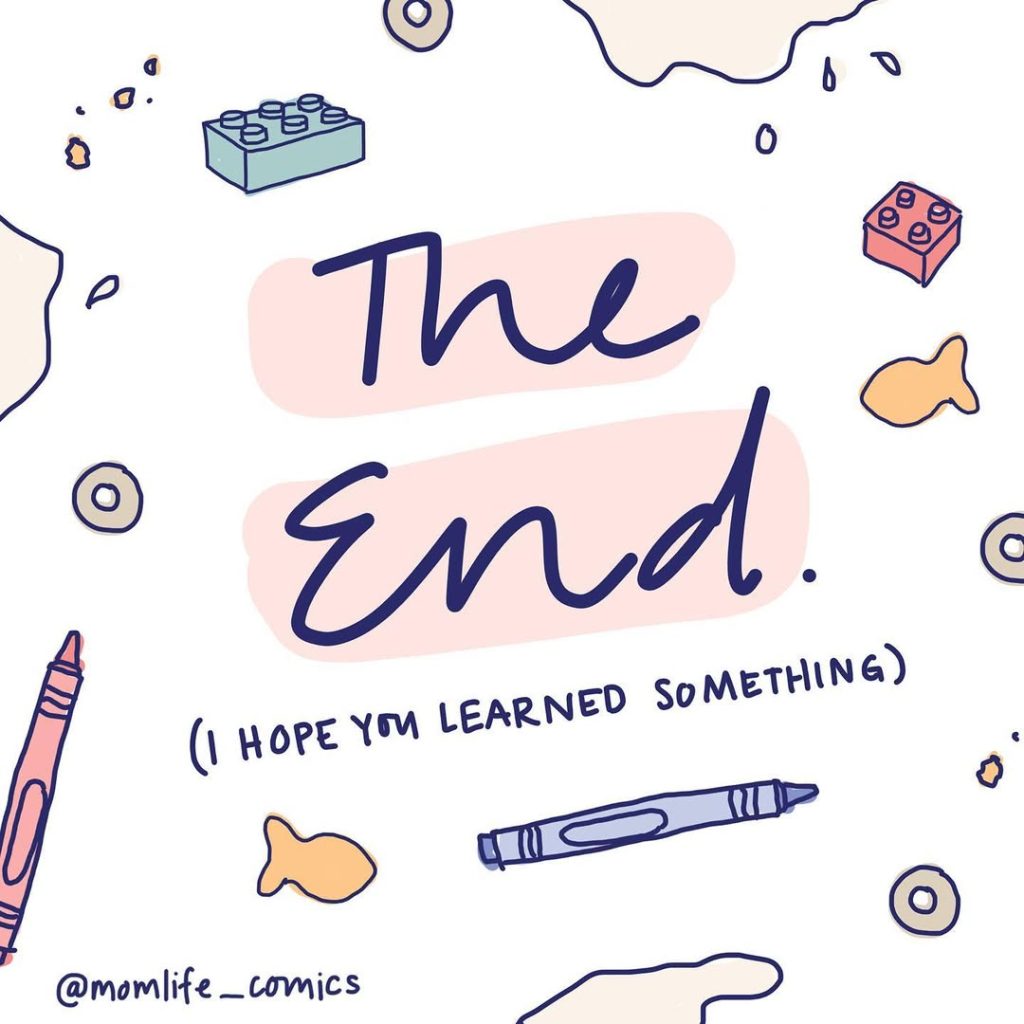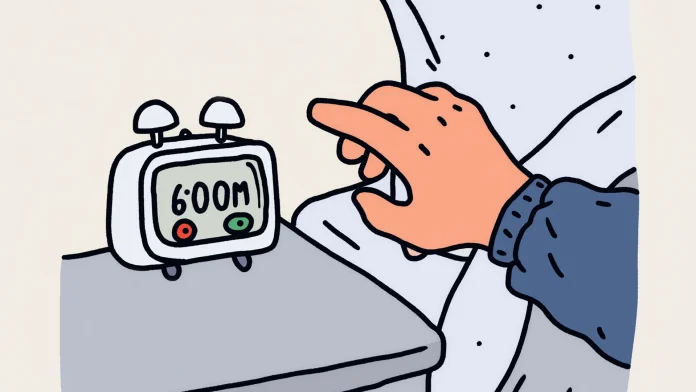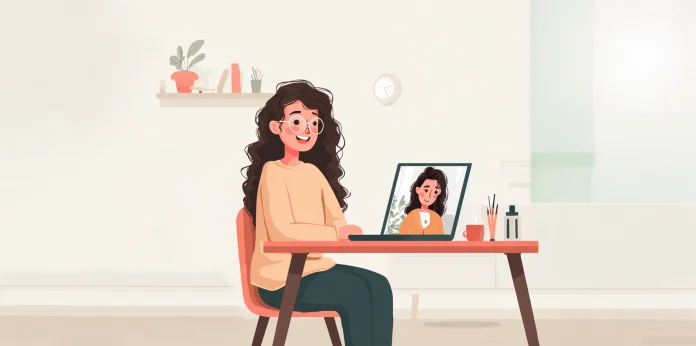Interview by Malena Sanchez Moccero
The artist behind @momlife_comics opens up about humor, gender inequality, the mental load, and her debut book Mama Needs a Minute! in this intimate interview.
Mary Catherine Starr is an illustrator, yoga teacher, graphic designer, and mom of two. On Instagram, she’s best known for @momlife_comics, where she captures the chaos, beauty, and invisible work of modern motherhood in a series of pastel-toned, sharp, and relatable comics. With honesty and humor, Mary Catherine explores topics like the mental load, the emotional labor of women in partnerships, and the quiet truths of parenting that rarely make it to Instagram grids.
In this conversation with Simple People, she shares the origins of her comics, how she navigates online backlash, the creative process behind her debut book, and the cultural pressure mothers still carry today.
SIMPLE PEOPLE: When did you realize your comics were becoming a central part of your creative work, and of your life?
MARY CATHERINE STARR: I started @momlife_comics in 2020, right before the pandemic. At first, I was just posting illustrations on my personal account—kind of a way to talk about how I was “really” feeling as a mom, especially after having my second kid. I felt exhausted, desperate even, and I didn’t want to pretend everything was fine with another smiling picture. Those early comics were a creative outlet. I noticed they were getting shared a lot, but it was confusing to have them mixed with family photos. That’s when I made a separate account for the comics. Everything changed when one of them went viral in January 2022. Since then, I’ve been much more focused on this work—though I still do design and teach yoga.
SP: Your comics are funny but also carry a strong political undercurrent. How do you balance humor with heavier themes?
MCS: It’s really important to me that the messages I’m sharing are accessible—even if you’re not familiar with the concepts I’m referencing. Talking about the mental load or gender inequality can sometimes feel too academic or angry for people to engage with. But comics are like a gateway. They let people laugh, see themselves in the story, and maybe start a conversation. I’ve had so many women tell me, “I showed this comic to my husband and we laughed, but then we talked about how unfair it really is.” The soft colors and minimal style help make it less threatening, and I think that’s what we need—because culturally, we’re still not ready to talk about these things in the mainstream without discomfort.
SP: You’ve been outspoken online about inequality and gender roles, which can be challenging. How do you protect your mental health?
MCS: It’s hard. Being a woman online and speaking up about politics or bodies or motherhood is terrifying. But I also feel a responsibility. I have a platform now, and I’m speaking to women—so I don’t feel like it’s a choice. I share what I’m passionate about. That said, I’ve had to set boundaries. I don’t read all the comments anymore, especially if a post goes viral. I used to respond to every DM; now I only engage in the first day or so. If the algorithm picks something up and strangers start flooding in, I step back. I also moved some of my more personal content to Substack, where it’s behind a paywall. And I spend way less time on Instagram than I used to.
SP: Did you ever imagine your comics would lead to a book? What surprised you most about that process?
MCS: Writing Mama Needs a Minute! was thrilling. I knew exactly what I wanted to say. I’ve been writing online for over a decade and have a background in design, so it felt very aligned. But the hardest part wasn’t writing—it was releasing it. Knowing people are reading something so personal is a strange feeling. You lose control over how it’s received. I worried that I might unintentionally hurt someone I love or be misunderstood. Luckily, the in-person events have been amazing. It’s mostly women and moms who relate deeply. It honestly felt like group therapy.
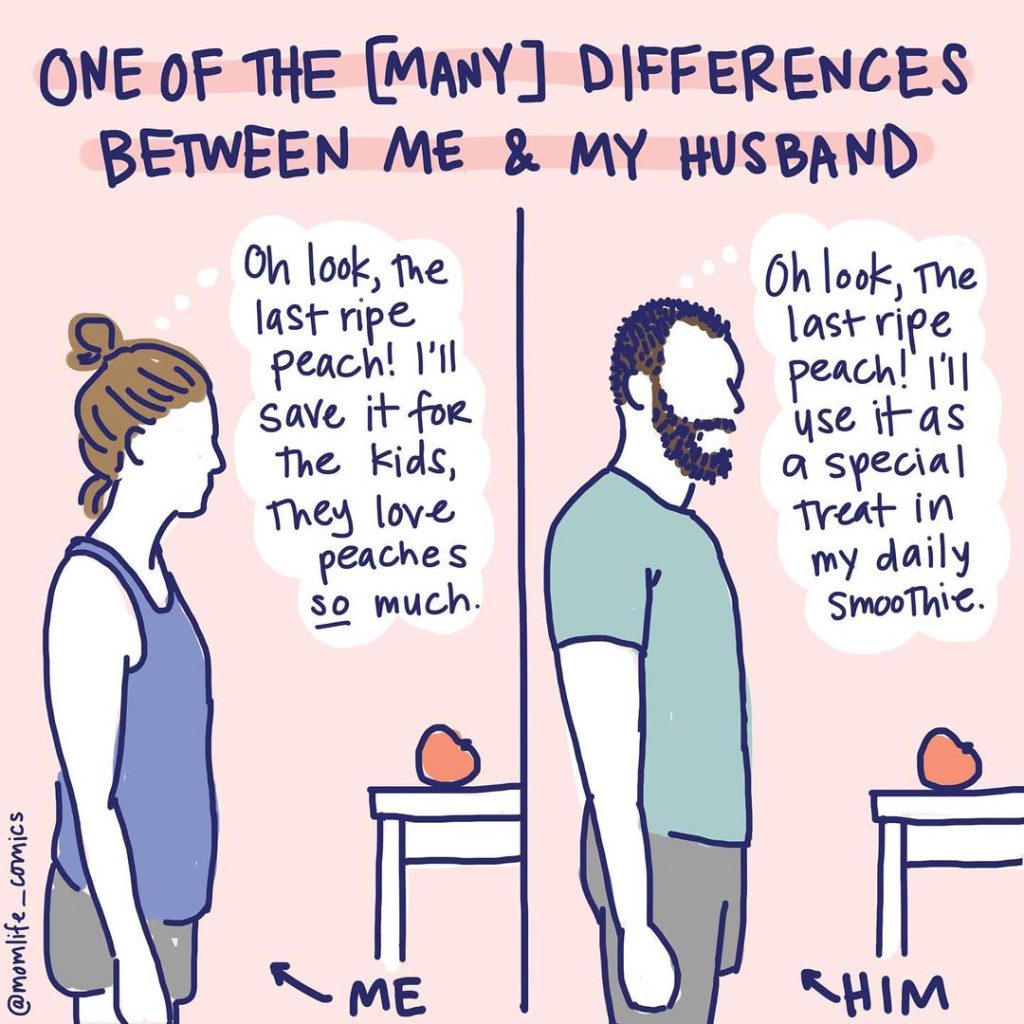
SP: Your characters don’t have faces. Why do you choose that?
MCS: There are a few reasons. Years before I started the comics, I was drawing minimal line art—sort of like logos—for weddings. I liked how a simple shape could suggest a whole person without saying exactly who it was. When I became a mom of two with no time during the pandemic, keeping it minimal helped me keep going. And people tell me they like being able to project themselves into the comics. It could be their mom, their partner, or themselves. It was partly an accident, but now it’s just my style.
SP: Your partner often appears in your comics. How does he feel about being part of your art?
MCS: He’s been incredibly supportive—from the very beginning. The comic that went viral about double standards? He helped me come up with it. Of course, when trolls come out or people criticize him or our relationship, it’s hard. As my following grew, we had to be more careful. Now I always show him a comic before I post it. But humor has always been a big part of our relationship. We tease each other. It’s how we communicate. That doesn’t mean it’s always easy—there’s a lot of truth in what I share—but he gets it, and he’s onboard.
SP: Much of your work focuses on the mental load. Even in progressive families, this burden often falls on moms. Why is it still so difficult to name—and share—this responsibility?
MCS: Because our entire society is structured to reinforce it. One example: even when schools ask you to list emergency contacts in order, they’ll still call the mom. I’ve heard stories from women where the dad shows up at daycare, and the staff still calls the mom to double-check. Even if you’re doing everything you can inside your home to share the load, the outside world keeps handing it back to moms. And that creates guilt. Even when I know my husband can handle something, I sometimes feel like a bad mom for not doing it myself—because the world expects me to. That pressure builds up, and it adds to the invisible load.
SP: If you could share one message with a new or struggling mom, what would it be?
MCS: You’re not the problem. The problem is cultural. You’re not failing. The expectations placed on mothers today are unmanageable. And while motherhood can be beautiful in so many ways, it will continue to feel overwhelming until we make big cultural and societal changes. So if you feel like you’re drowning—it’s because you kind of are. But it’s not your fault. You’re doing great in a system that isn’t built to support you.
